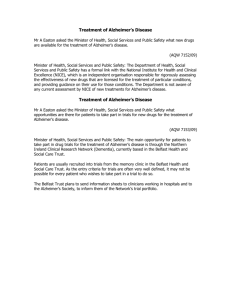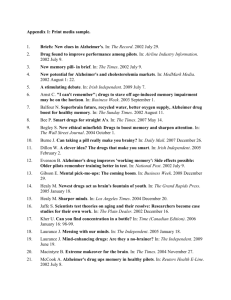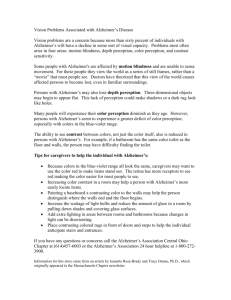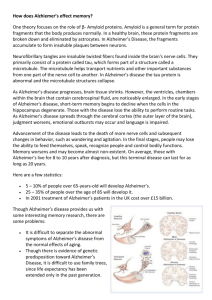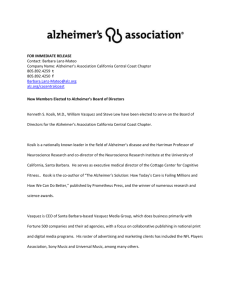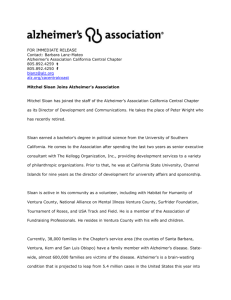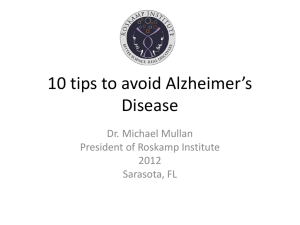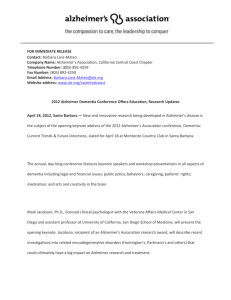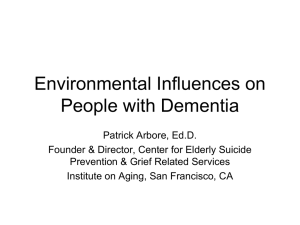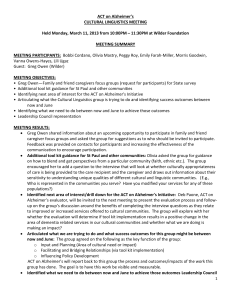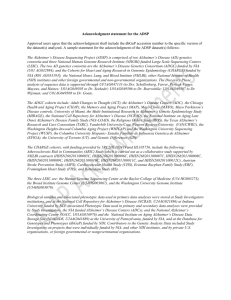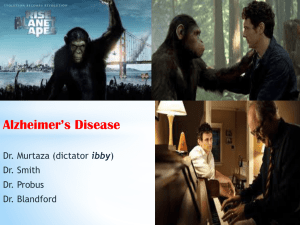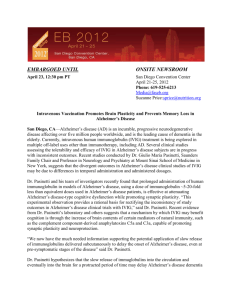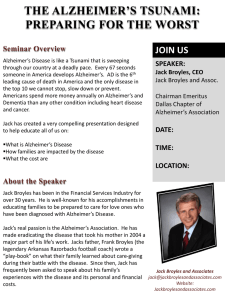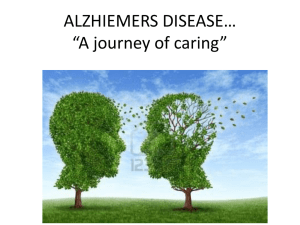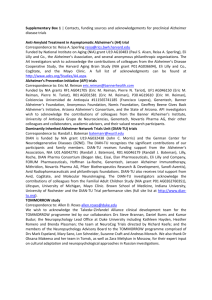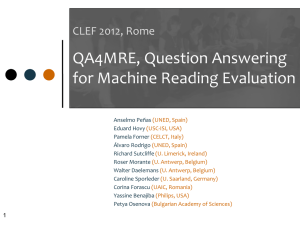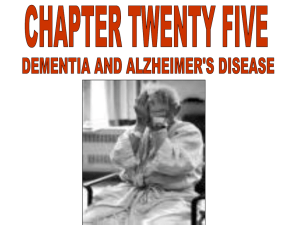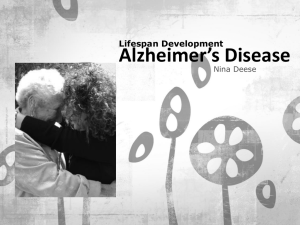Diagnostic Assessment
advertisement
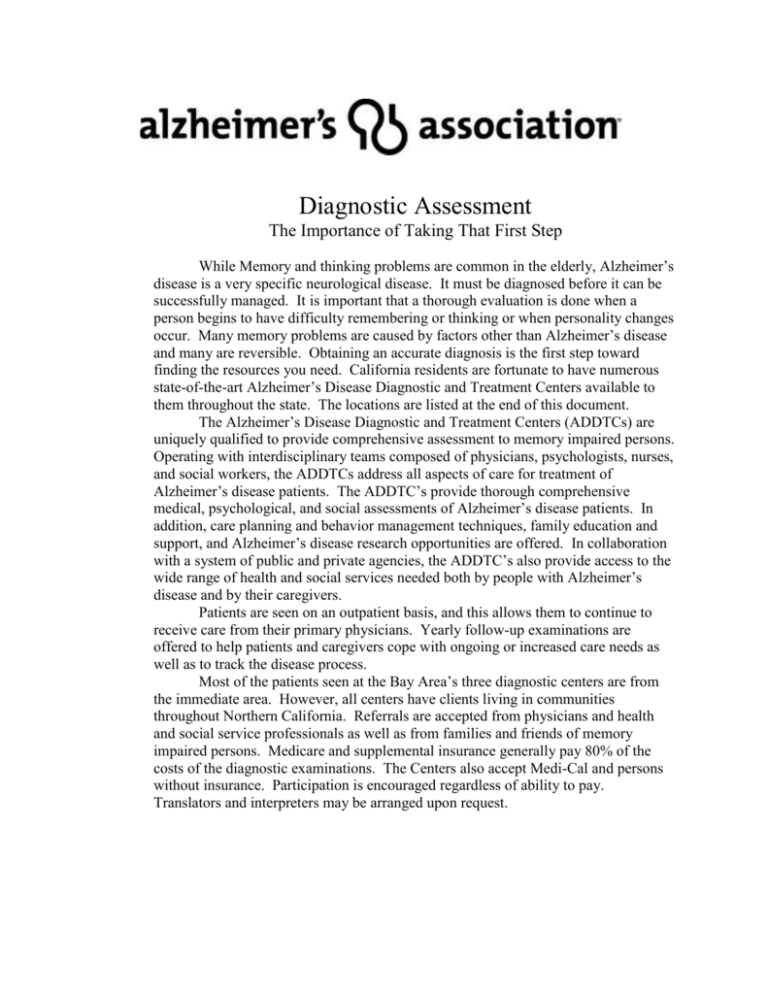
Diagnostic Assessment The Importance of Taking That First Step While Memory and thinking problems are common in the elderly, Alzheimer’s disease is a very specific neurological disease. It must be diagnosed before it can be successfully managed. It is important that a thorough evaluation is done when a person begins to have difficulty remembering or thinking or when personality changes occur. Many memory problems are caused by factors other than Alzheimer’s disease and many are reversible. Obtaining an accurate diagnosis is the first step toward finding the resources you need. California residents are fortunate to have numerous state-of-the-art Alzheimer’s Disease Diagnostic and Treatment Centers available to them throughout the state. The locations are listed at the end of this document. The Alzheimer’s Disease Diagnostic and Treatment Centers (ADDTCs) are uniquely qualified to provide comprehensive assessment to memory impaired persons. Operating with interdisciplinary teams composed of physicians, psychologists, nurses, and social workers, the ADDTCs address all aspects of care for treatment of Alzheimer’s disease patients. The ADDTC’s provide thorough comprehensive medical, psychological, and social assessments of Alzheimer’s disease patients. In addition, care planning and behavior management techniques, family education and support, and Alzheimer’s disease research opportunities are offered. In collaboration with a system of public and private agencies, the ADDTC’s also provide access to the wide range of health and social services needed both by people with Alzheimer’s disease and by their caregivers. Patients are seen on an outpatient basis, and this allows them to continue to receive care from their primary physicians. Yearly follow-up examinations are offered to help patients and caregivers cope with ongoing or increased care needs as well as to track the disease process. Most of the patients seen at the Bay Area’s three diagnostic centers are from the immediate area. However, all centers have clients living in communities throughout Northern California. Referrals are accepted from physicians and health and social service professionals as well as from families and friends of memory impaired persons. Medicare and supplemental insurance generally pay 80% of the costs of the diagnostic examinations. The Centers also accept Medi-Cal and persons without insurance. Participation is encouraged regardless of ability to pay. Translators and interpreters may be arranged upon request. Informed patients and families can make better decisions about care and treatment issues. Recognition and thoughtful attention to medical and social problems can insure that memory impaired individuals and their caregivers continue to secure the resources they need. Obtaining an accurate diagnosis is the first step toward managing this challenging disease. By Ann Trapnell. UCD-NCADC Alzheimer’s Disease Research Centers of California San Diego University of California, San Diego 619-294-3777 Fresno University of California, San Francisco 559-227-4810 Irvine University of California, Irvine 949-824-2382 Los Angeles University of Southern California 323-442-3715 http://www.alz.uci.edu Los Angeles/San Fernando Valley University of California, Los Angeles General Information: 310-206-5238 UCLA Appointments: 310-794-1195 Drew/UCLA Center: 323-563-5915 Olive View/UCLA Center: 818-895-9541 Los Angeles/Downey University of Southern California Rancho Los Amigos National Rehabilitation Center 562-401-8130 http://www.adc.ucla.edu Palo Alto Stanford University/Stanford VA 650-858-3915 San Francisco University of California, San Francisco 415-476-6880 http://arcc.stanford.edu Martinez University of California, Davis 925-372-2485 Sacramento University of California, Davis 916-734-5496 http://alzheimer.ucdavis.edu http://alzheimer.ucdavis.edu

